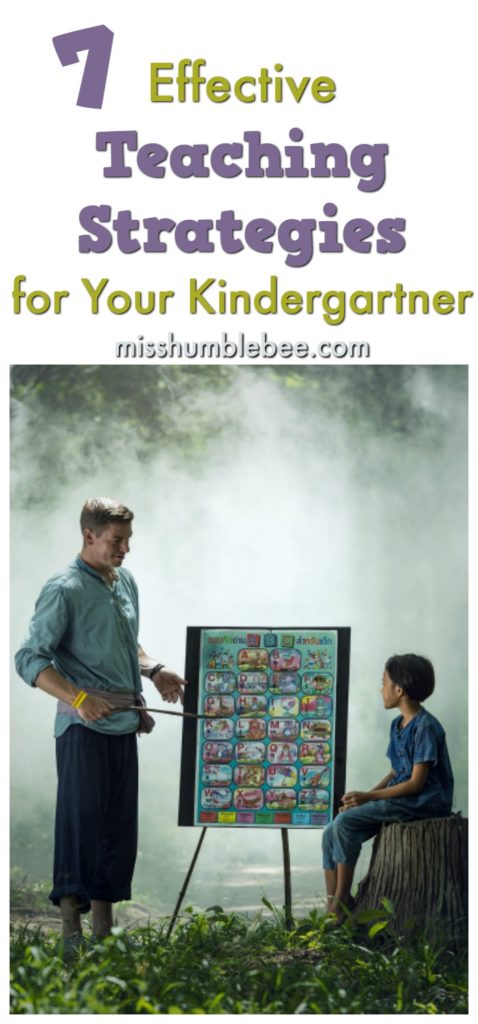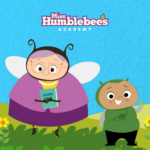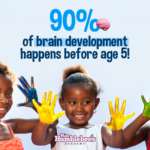I frequently joke with my husband that I will teach our children until they reach 6th grade and after that, they are all his. But recently I stopped after making the joke and asked myself, “Why do I say that?”
I know I want my children to be their best, but will I be their best teacher after a certain point? Will I know how and what to teach them? Should I be teaching in a better, different way?
What if I am doing it all wrong?
I think as parents we struggle with these and many more questions, whether our children are home schooled or attend public or private school. The truth is, we will never know all the answers, and that is okay.
Imagine how powerful the statement, “I don’t know; let’s figure it out together,” can be for you and your child.
When it comes to doing educational activities with your preschooler or kindergartner, whether it’s an informal learning experience or a more structured school setting, have you ever given thought to your teaching strategies?

Keep the following seven strategies in mind for the best possible learning experience for both your child and yourself.
Seven Effective Teaching Strategies For Your Kindergartner
- Make sure you are in the right state of mind.
If you are tired, hungry, stressed out, or a number of other things, you will not be an effective teacher. - Make sure the child is in the right state of mind.
Similarly, if your child is hungry, tired, or a number of other things, he will not be an effective learner.
- Make sure the activity is a gradual step forward from what they know.
This will allow them to feel they can complete the task without too much stress. - Make sure the child finds value in the activity.
Nothing will frustrate both you and your child more than doing an activity that she has no interest in. Of course, there are things she needs to learn that she may not see the value in immediately, which leads us to #5: - To reward or not to reward?
We all do things we don’t necessarily like because the activity leads to a desired reward or avoidance of a negative consequence.
However, we have to make sure we are careful when it comes to rewarding because it can have a negative effect. A child may begin to focus more on the reward than on the actual information being taught.
For a more in depth discussion on whether to reward or not, check out our article How to Foster Good Learning Habits in Children. - Be available to help and guide, not give answers.
It’s tempting to DO for our children when they aren’t ‘getting it’, but if we truly want them to learn a new concept, we must allow them to go through the process, even when it’s a struggle.
- Remember to enjoy this process.
You are your child’s first teacher and you are setting the tone for learning. If you find the teaching process difficult, frustrating, or challenging and your child is aware of this, think how they will find learning.
If you employ all of these strategies and still feel that your teaching is not effective, keep one more thought in mind. How many times did you say the word Mommy or Daddy before your child repeated it? Learning is a process and sometimes it takes patience and persistence.
I wish happy teaching and learning to both you and your child.










